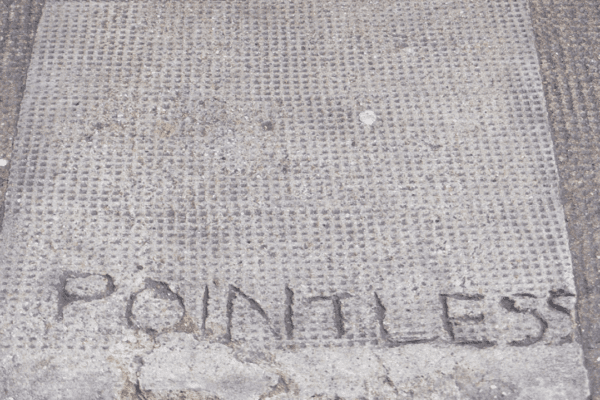Challenge Everything!
We’re a year into the pandemic. Do you have a clear idea of where you’re heading? Take a few minutes with us to look at how critical thinking skills can bring clarity to your business and help you get the best from your team.
Are you making decisions the same way you were before the pandemic? Have you considered what you could do differently? Would you like a system refresh for the new normal?
These skills will help you give your thought processes a spring clean and sweep out the cobwebs. But they can do much more.
The ability to use critical thinking to think logically about a problem in order to solve it is a valuable soft skill. Employers prefer job candidates who can demonstrate a history of using critical thinking skills. Because they want to have employees who can solve problems quickly, but more importantly, they want them to solve them effectively.
This article focuses on using critical thinking at work to support your business decision making. But applying the underlying principles can also help in other areas of your life.
What is Critical Thinking?
Critical thinking is defined as the ability to analyse information objectively and draw a rational conclusion. It also involves gathering information on a subject. And determining which pieces of information apply to the subject and which do not, based on deductive reasoning. The ability to think critically helps people in their personal life and professional lives and is valued by most employers.
Related reading: Check out our ultimate guide on HBDI.
What are the Benefits?
Critical thinking has many benefits, such as improving powers of persuasion, enhancing communication skills, and boosting problem-solving abilities. Also, it can help us improve our emotional intelligence.
These skills are a superpower we can all develop. So use them to enable you in all you do. This includes career planning, making life choices and mining the nuggets in everything you read, and applying them. From course material and reference books to social media.
Is Critical Thinking the Same as Being Critical?
No, it isn’t. Being a critical thinker isn’t the same as being a critical person, though people get the two confused! We’ve all had critical bosses who didn’t know the first thing about critical thinking!
Critical people tend to seek out and point out other people’s faults. Critical thinkers should be able to step back and see potential problems in their own conclusions. As well as the conclusions of others.
Sticky Learning ® is 7 times more effective than 1-day training courses. Plus, you will get a Chain of Evidence proving your Return on Investment. Discover soft skills training that changes behaviours long term.

What Synonyms are There for Critical Thinking?
Top synonyms include critical reflection, critical reasoning, and critical judgment.
So now let’s look at some ‘numbers’:
What are the Four Aspects of this Thinking?
- Identification of the argument. Before you evaluate how sound an argument, you need to break it apart into its individual components.
- Once you identify the premises for your argument, you can begin to examine each of them for validity.
- Deductive and inductive reasoning.
- Final Evaluation.
What are the Eight Elements of Critical Thinking?
Teachers identify these elements in the critical thinking process:
- Reflection
- Analysis
- Acquisition of information
- Creativity
- Structuring arguments
- Decision making
- Commitment
- Debate
What are the Nine Critical Thinking Skills?
This is a business-speak version of the teachers’ list we just looked at. The core critical thinking skills for business include observation, analysis, interpretation, reflection, evaluation, inference, explanation, problem-solving, and decision making.

Can you Give me Some Examples?
Based on the skills for business we listed just now, these include:
- Analytical thinking. Being able to properly analyse information is the most important aspect of critical thinking.
- Good communication. Whether you use it for gathering information or convincing others that your conclusions are correct, good communication is crucial in the critical thinking process.
- Creative thinking: Thinking about different possible solutions and using lateral thinking
- Open-mindedness: Opening yourself up to take time to listen to others’ opinions and ideas and weighing them up and giving them fair consideration
Can you Give me a Few More Examples?
- Promoting a teamwork approach to problem-solving.
- Self-evaluating your contributions to company goals.
- Practicing self-reflection.
- Making informed decisions.
- Looking at how to use your time wisely.
Is Critical Thinking the Same as Problem Solving?
Being able to think critically is an essential part of the problem-solving process. This skill involves questioning rather than simply accepting information that you hear or read. It enables you to identify different points of view, put together arguments and evaluate the arguments made by other people.
Let’s Play Doctors and Nurses: Critical Thinking in Nursing
Doctors and nurses use critical thinking skills and reasoning in their workplace. They need to rapidly analyse information and decide on an action plan based on what they observe. And a mistake can mean life or death for patients. So when you are admitted to hospital, nurses assess your symptoms and use critical thinking to judge in which order to treat you and the other patients.
What is a Critical Thinker?
A critical thinker is likely to be:
- Objective – Able to recognise their biases and other people’s and look at things from a neutral perspective.
- Logical – Able to set standards and criteria for assessment, and follow a step-by-step approach.
- Evidence-based – Able to take into account facts and data, and not rely on feelings or unsubstantiated claims.
- Collaborative – Able to receive input from multiple sources and willing to consider other people’s ideas.
Can you Recommend any Good Books about Critical Thinking?
Well yes, there are lots of books about critical thinking available online. Critical Thinking: The Ultimate Guide to Improving Your Critical Thinking Skills by Scott Lovell looks rather good. Critical thinking is gender neutral. Stella Cottrell’s Critical Skills: Effective Analysis, Argument and Reflection sounds like it covers the ground thoroughly. From the title, Critical Skills For Dummies has a certain honesty about who it’s aimed at – complete beginners. Developing Children’s Critical Thinking Through Picturebooks by Mary Roche is for parents and early years teachers, but it might bring a different angle to your study!
How will it Help Me in the Workplace?
Actively employing these skills in the workplace will help you to up your performance and make decisions effectively.
- It opens you up to trying new things. It’s so easy to shoot down an idea without it any thought. We’ve all worked with people like that! A critical thinker looks for more information. Why is that a good suggestion? Is there any proof that shows a different method might work? What metrics can we use to measure results? Employing critical thinking can help you find better ways of doing things.
- It helps you determine the right course of action. Fast moving situations call for a quick and accurate decision that will not prove to be the wrong move later on. So when important decisions need to be made, critical thinking is a must.
- It helps you handle your emotions: Work decisions can sometimes involve emotional challenges which put us in a tough spot, particularly where people we know well are involved. But these skills help us to be aware of our emotions and examine all aspects of the problem objectively. Critical thinkers make better business decisions because they collect more information, analyse it thoroughly, and come to a logical conclusion.

Can you Test These Skills?
Yes, you can. The Watson Glaser Critical Thinking Appraisal (WGCTA), developed and published by Pearson, is said to be the most widely-used critical thinking assessment test. And there are lots of other tests to assess people’s critical thinking abilities, for use in recruitment or assigning work teams.
I think we did this at School!
You could well have done. Critical thinking A level has been a sixth form option for decades. It helps students think their way through A levels and become independently minded about learning so they succeed at Uni. And the interviewer’s favourite question, ‘what would you do if…?’ is asking you to do some thinking critically.
What are Some Other Typical Critical Thinking Interview Questions?
Whether you’re fresh-faced or you’ve been around the block, you’ve probably heard these:
- So tell me about a time when you had to solve a problem without all the help you needed.
- Have you ever had to make an immediate decision?
- Describe a situation when you achieved a set goal.
- Have you ever anticipated a problem and taken steps to prevent it?
- How did you handle a disagreement with colleagues?
What would I Learn in a Critical Thinking Course?
In a typical course, students examine different types of intelligence and learning. They develop critical thinking strategies and apply them to reading, writing, and listening. Students apply questioning strategies and engage in reflective thinking, problem-solving, and testing arguments.
How does it Fit into Marketing or HR?
Critical thinking comes into its own when there’s no clear ‘right’ answer:
- Deciding who to promote or assign to a task.
- Analysing business data – sales figures, channel trends, SEO results, whatever – and identifying the best action to take.
- Scoping out a project or brainstorming promotions or new products.
- Responding to a customer problem where the remedy isn’t certain.
It is the polar opposite of everyday, conventional thinking. Stare it down! We all too often run on autopilot when we’re busy at work. So send your mind back to college with critical thinking, and explore the potential in every situation.
Critical Thinking has a Long Track Record…
Critical thinking first became a “thing” in 1941, when US academic Edward M. Glaser published his study applying it in education. “An experiment in the development of critical thinking” brought the concept to prominence in the modern world. But the idea goes back to ancient Greece.
The Athenian rulers were powerful orators. But Socrates wasn’t so convinced. He called out their sloppy use of language, lack of factual backup, and contradictory beliefs. And in so doing, he invented what we know today as critical thinking.
Socrates’ approach became the foundation for this type of thinking over the next few centuries. Fast forward to today, and these skills help us steer through the fog of information to find the facts. It empowers you to reject the ideas with no reasonable basis but keep the rest. And, it enables you to understand and appreciate differing viewpoints and find a balance.
The Secret Superpower you Never Knew you had!
Can Thinking Critcally Help me in a Rut at Work?
When you’re in a fix, critical thinking can help reason things out and solve the problem so everyone’s happy. So turn an awkward situation into a Win, Win. Rewrite the scenario and do your organisation and your career some good.

My boss won’t like me Questioning their way of Doing Things! They’ll think I’m Being Difficult.
Okay yes, at school disruptive students get punished. They’re told off, kept in and excluded! But in business, being disruptive is a virtue that can make you top of the class. This thinking skill helps you and your team devise innovations to disrupt your market. So use it to create evidence-based strategies so you stand out from the crowd.
Can Critical Skills Thinking help with Diversity and Inclusivity?
Yes, it is a useful tool to look at challenges like diversity and inclusivity and help you grasp the different viewpoints and the complex issues. Talking specifically about D&I, being proactive and open about it leads to happier staff, who are ambassadors for the business.
And there’s another important benefit. By making people who previously saw themselves as outsiders feel accepted, businesses will access fresh thinking. Also, encouraging these staff members’ contributions may highlight new solutions you’ve not identified before.
So Why does it Matter Now More than Ever?
Despite the pandemic, Britain still has one of the world’s strongest economies. We continue to attract talented people from around the world, eager to do well. In our competitive marketplace, those with the ideas, ability and the will to work hard will flourish. Success involves being able to analyse the available information and make informed decisions. That takes critical thinking.
Also, businesses need to use these skills to assess the likely impacts of Brexit, changing Government regulations, and ongoing pressures to achieve sustainability. And respond with agility and resilience to the pandemic’s continuing effects.
And not to be forgotten, there’s also the question of technology and instant communication. We live in a highly charged online environment with fake news and conspiracy theories. For business people, picking our way through to the hard facts makes it even more important.
Time for some Sticky Learning
So here’s the bottom line. Critical thinking skills help you come up with exciting ideas so people around you take note and reach out to you for inspiration. And they make you confident about voicing your opinions on an issue or strategy, to show your leadership.
We hope this article has got you thinking about sharpening your secret superpower. As trainers to the UK grocery industry, critical thinking and other essential soft skills are at the heart of our Sticky Learning proposition. We want to help you become the best possible version of you. Talk to us!




